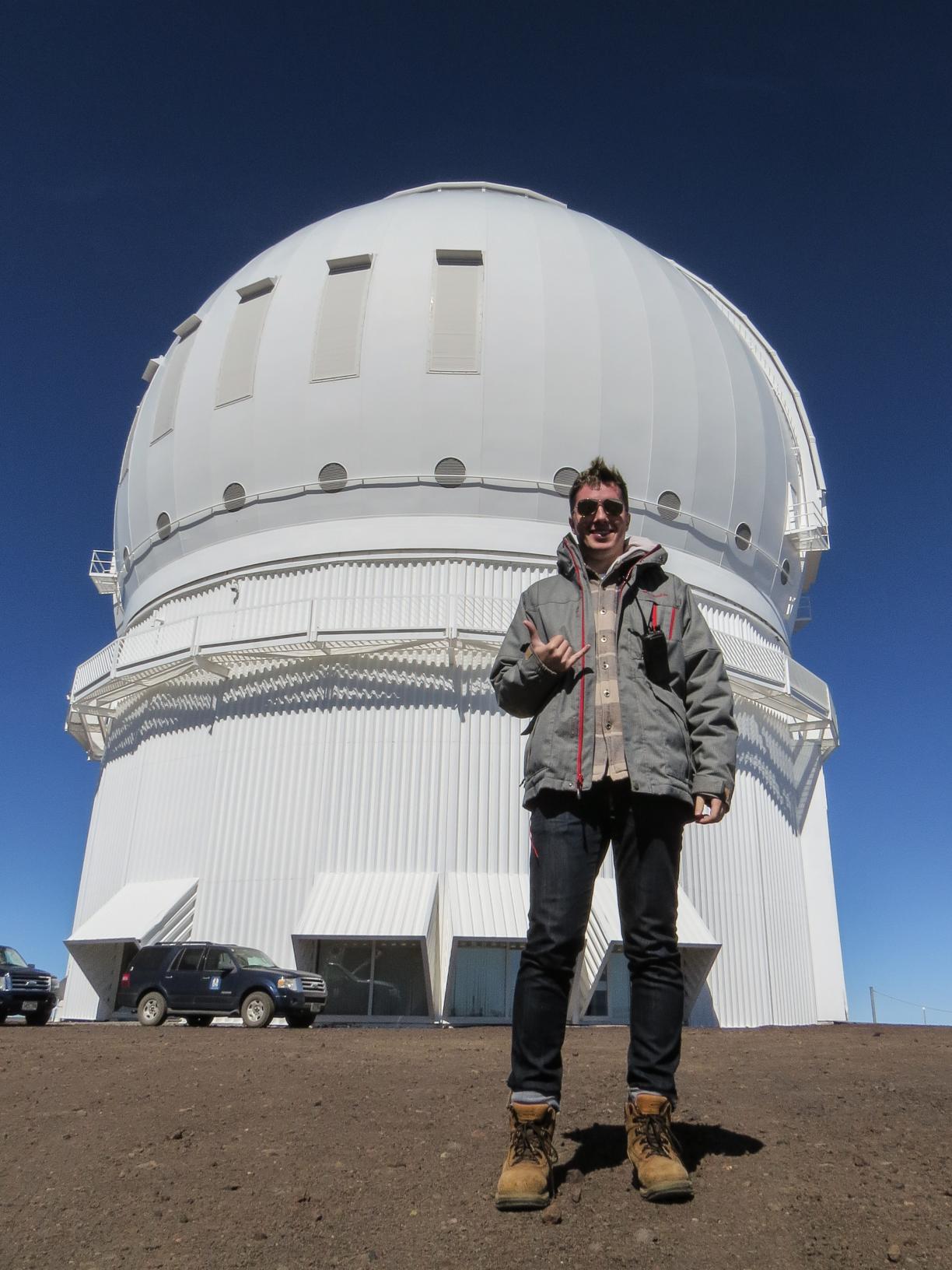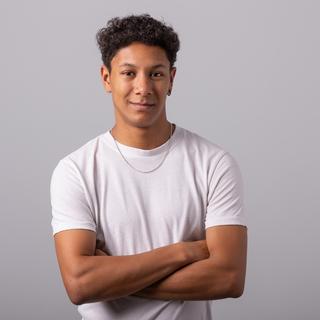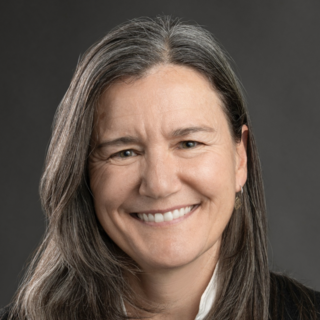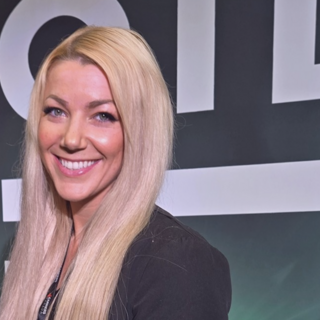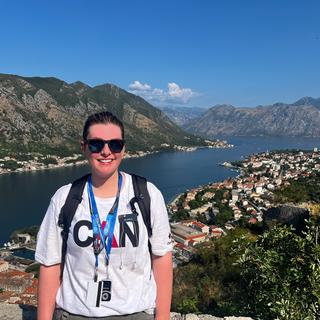Cam Wipper has always been interested in the stars, but it wasn’t until he stepped into an astronomy class with Dr. Greg Arkos at Vancouver Island University that he was hooked. Today he works at the Canada-France-Hawaii Telescope on the Big Island of Hawai'i, conducting night-time scientific observations for astronomers across Canada and around the world. Here’s a bit about his journey from general studies student at VIU to working at a world-class observatory.
How did your studies at VIU help you figure out what you wanted to do?
I attended VIU for three years, from Fall 2008 to Spring 2011. During this time, I did not have a declared major. I knew I was interested in math and science though, and I ended up taking classes in a variety of science subjects — chemistry, geology, geography, anthropology, human anatomy, physics, math, and, critically, astronomy (among other classes like digital media, film studies and physical education). Having all these options at VIU was huge for me. I didn’t know what I wanted to study, and VIU allowed me to take a huge range of classes and really hone in on my passions.
How did you get interested in astronomy?
Ever since I was young, I was interested in astronomy. It was always just a hobby until I arrived at VIU. In my first semester, I took an introduction to astronomy class with Dr. Greg Arkos and I was hooked. I worked through all of the astronomy classes that VIU offered, and when those ran out, I began looking elsewhere to continue those studies. I really credit Dr. Arkos for inspiring me to continue my journey. He convinced me that astronomy was something I could study, and perhaps make a career out of. I’ve also been lucky enough to be able to stay in contact with him, and I count Dr. Arkos as a friend to this day. In 2019, he came down to the Big Island with his family for Christmas and I was able to take him up to CFHT, which was, in a way, the completion of a journey that began back in 2008 in his classroom in Building 315.
Tell us about your journey since leaving VIU.
I left VIU in 2011 to transfer to the University of Hawaii at Hilo (UHH to study astronomy full-time. UHH has a unique astronomy program, thanks to its proximity to the observatories on Maunakea. I graduated with my astronomy degree in 2013, and then took on three different part-time work experiences. I worked as a telescope operator for the James Clerk Maxwell Telescope (JCMT); as a laser operator and lead aircraft spotter for Gemini Observatory; and as a Planetarium Operator and host at the ‘Imiloa Astronomy Center. After doing this for about 18 months, I was hired by the Canada-France-Hawaii Telescope (CFHT) in 2015 as a full-time telescope operator and scientific observer. Eight years after graduating, I remain here on the Big Island working at CFHT.
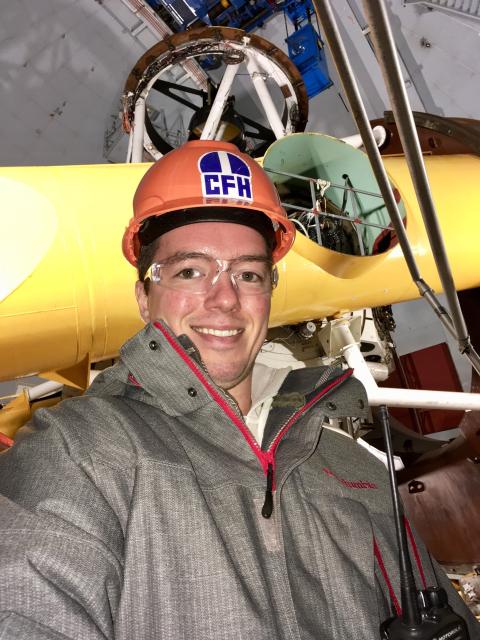
What should people know about the Canada-France-Hawaii Telescope?
The Canada-France-Hawaii Telescope is one of the world’s premier observatories, and continues to produce world-class, cutting-edge science (a recent example is the ‘Oumuamua interstellar object). CFHT is funded in part by the government of Canada, through the National Research Council, and available for, and used by, astronomers across Canada to make new discoveries. A number of our instruments, including SITELLE, an extremely advanced imaging spectrograph, were built in Canada. CFHT has a staff of about 45, including a handful of other Canadians. One of these is Dr. Laurie Rousseau-Nepton, the first Indigenous woman from Quebec to obtain a PhD in astrophysics.
What advice would you give other VIU students on a similar journey?
My advice is to always have an open mind and be willing to explore and take chances. I took classes in many different subjects that I wasn’t sure I was interested in. If I had been forced to decide my path immediately, I don’t think I’d be where I am today. The other piece of advice would be to take any opportunities that present themselves. My transfer to UHH was not something I planned, but when an opportunity presented itself rather unexpectedly, I decided to jump on it. I had no idea it would lead me to where I am today, and that’s the point. It’s impossible to know where things will lead, but you’ll never find out if you never go for it.
What’s next for you?
I recently received a promotion here at CFHT to a different position. I will still occasionally conduct nighttime telescope operations, though most of my time will be spent providing technical support for the other operators, as well as managing observatory fault tracking and telescope software development projects. I will be returning to Canada next month to apply for a new US work permit for this position. Due to the COVID-related travel restrictions and Canada’s mandatory quarantine, it’s likely this process will take several weeks. Considering the current situation, I hope to start my new position in June. Once this process is complete, I anticipate being at CFHT for some years to come. There are always uncertainties about US immigration/foreign worker programs, but CFHT continues to help me navigate this system, so I feel fairly secure on this front.

